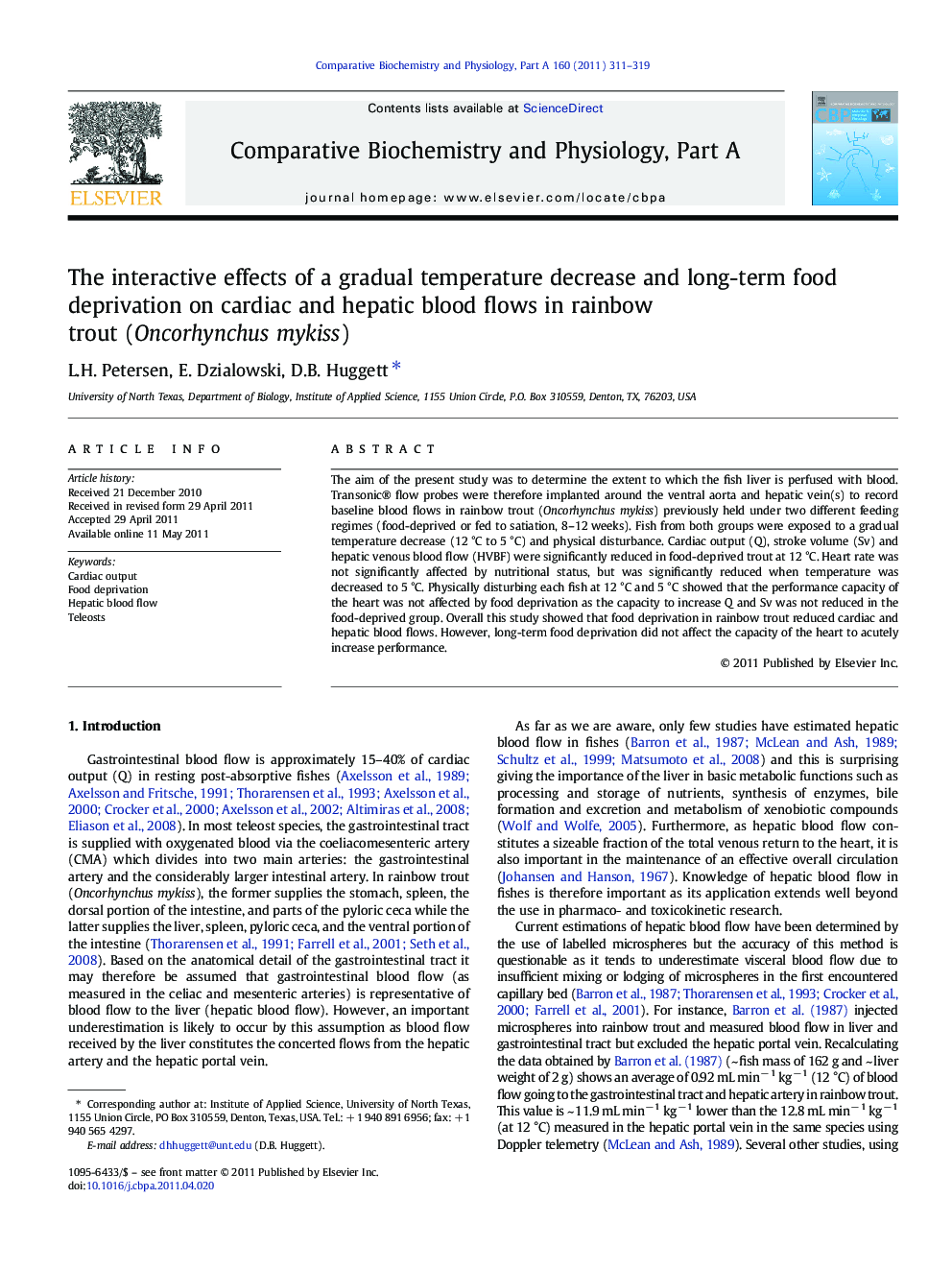| Article ID | Journal | Published Year | Pages | File Type |
|---|---|---|---|---|
| 1973030 | Comparative Biochemistry and Physiology Part A: Molecular & Integrative Physiology | 2011 | 9 Pages |
The aim of the present study was to determine the extent to which the fish liver is perfused with blood. Transonic® flow probes were therefore implanted around the ventral aorta and hepatic vein(s) to record baseline blood flows in rainbow trout (Oncorhynchus mykiss) previously held under two different feeding regimes (food-deprived or fed to satiation, 8–12 weeks). Fish from both groups were exposed to a gradual temperature decrease (12 °C to 5 °C) and physical disturbance. Cardiac output (Q), stroke volume (Sv) and hepatic venous blood flow (HVBF) were significantly reduced in food-deprived trout at 12 °C. Heart rate was not significantly affected by nutritional status, but was significantly reduced when temperature was decreased to 5 °C. Physically disturbing each fish at 12 °C and 5 °C showed that the performance capacity of the heart was not affected by food deprivation as the capacity to increase Q and Sv was not reduced in the food-deprived group. Overall this study showed that food deprivation in rainbow trout reduced cardiac and hepatic blood flows. However, long-term food deprivation did not affect the capacity of the heart to acutely increase performance.
